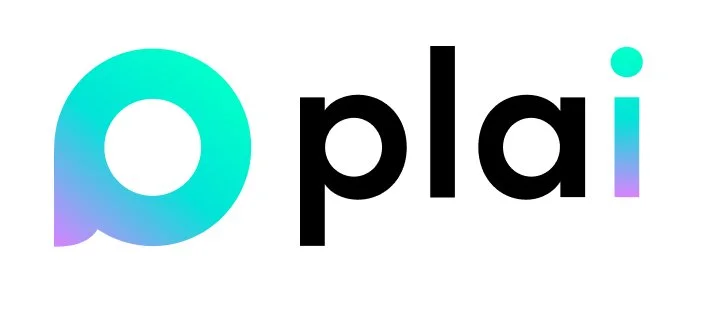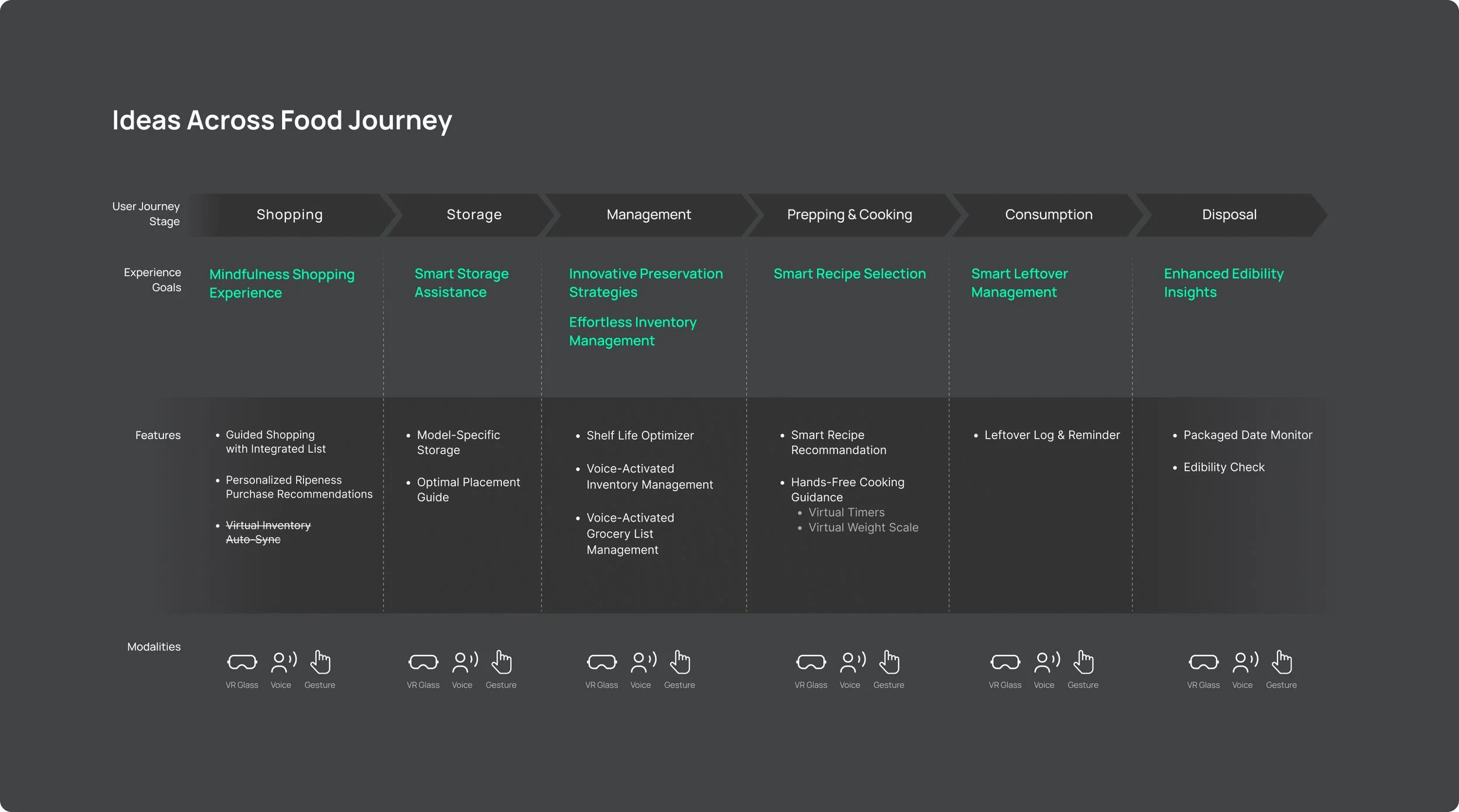Mixed Reality Design
plai: from plate to planet
An intelligent voice assistant in mixed reality, designed to help millennials reduce food waste throughout their food journey.
Role
Solo, thesis project
Tool
Figma, After Effect, Photoshop
Timeline
October 2023 – May 2024
Food waste is a widespread issue, driven by inefficient food management, poor inventory tracking, and misunderstanding of expiration dates. Despite rising environmental awareness, many, especially Millennials, struggle to manage their food effectively due to busy lifestyles. Forgotten leftovers, spoiled ingredients, and improper storage lead to unnecessary waste. This highlights the need for solutions that simplify food management and help reduce waste throughout the food journey.
Problem
Solution
Plai, an intelligent voice assistant in mixed reality, helps users efficiently manage their food, providing timely reminders when items are approaching expiration and offering tailored suggestions for preserving freshness and reducing waste.
Background
During the pandemic, food shortages shifted how we perceive meals and ingredients. Growing vegetables and baking bread made me appreciate the value of every bite. This experience led me to ask: How can we sustain this mindfulness about food? Can technology help reduce waste? What causes us to discard food that could still be used? These questions became the foundation of my design project on minimizing food waste.
DISCOVER
Online Survey
My research began with an online survey to help define my target users. As I explored solutions to reduce food waste, Millennials quickly emerged as the ideal focus. The survey highlighted their strong environmental awareness—67% believe their food choices impact the environment—and many are eager to invest in technologies that can help them better manage waste. With many Millennials managing households and comfortably using digital tools, it became clear that they were the right demographic to focus on. Their environmental values, coupled with a practical need for solutions that fit into their busy lives, made them a natural fit for this project.
In-depth interview
To dive deeper into understanding this demographic, I recruited four participants for in-depth interviews. These interviews aimed to explore their current food management habits, challenges they face with minimizing waste, and their openness to adopting tech-based solutions.
Key Finding
Six key stages of interaction with food: shopping, storage, management, prepping & cooking, consumption, and disposal.
A common desire for a hands-free experience—participants wanted a solution that could easily integrate into their routines without requiring too much effort.
Difficulty in updating inventory in real-time, leading to inaccurate records.
Inaccurate inventory tracking demotivates participants from consistently managing their food effectively.
Diary studies
The final research method I used was a diary study. Over the course of a week, I asked four participants to document their daily food waste habits, specifically focusing on their consumption and storage practices. This method provided valuable insights into their everyday behaviors.
Key Finding
People often forget what they have in their kitchen, leading to food spoilage.
There is a lack of knowledge about proper food storage techniques, which could help extend the shelf life of groceries.
Many participants misunderstood expiration dates, assuming food was spoiled once the date had passed, resulting in unnecessary waste.
Leftovers were often forgotten in the fridge, and by the time participants noticed them, they couldn’t remember when the food was prepared, leading them to throw it away.
DEFINE
Synthesizing my research
With data collected from surveys, interviews, and diary studies, the next step was to synthesize the insights. By examining the pain points across each stage of food interaction—from shopping to disposal—I identified key challenges like inventory management, proper food storage, and leftover handling. These findings laid the groundwork for developing a user-centered solution that directly addresses these core issues.

PROBLEM STATEMENT
How might we help millennials easily manage their food inventory and provide relevant information in time to prevent food waste throughout their food journey?
IDEATION
Design Objectives
Efficient: Streamline the process of food management.
Personalized: Tailor recommendations and alerts to individual needs.
Hands-free experience: Allow seamless interaction without interrupting daily routines.
Reliable & Engaging: Build trust through accuracy and maintain user interest through an engaging experience.
Design Solutions
01
Effortless inventory management
Pain Point:
User frequently lose track of their kitchen inventory resulting in waste and frustration.
Users find manual inventory updates inconvenient especially while cooking leads to Inaccurate inventory tracking.
Solution:
Plai offers a voice-activated inventory update feature, enabling users to effortlessly manage their pantry with simple voice commands. Whether adding new purchases or noting the use of items.
02
Innovative Storage Strategies
Pain Point:
User frequently lose track of their kitchen inventory
Lack of awareness about varied food storage techniques to extend shelf life
Solution:
Plai monitors user’s fridge and notifies them when items are nearing their shelf life, offering personalized preservation tips. It tailors suggestions based on how long users'd like to extend freshness, from a week to months.
03
Enhanced Edibility Insights
Pain Point:
Misinterpretation of dates on the package (best
use by, sell by)Food usability checks overlooked.
Solution:
Plai offers a practical guide that encourages users to use their senses to determine food's safety and quality. This feature provides step-by-step sensory checks for various food items, helping users to make informed decisions beyond just relying on 'best before' dates.
04
Smart Leftover Management
Pain Point:
Meal leftovers often forgotten in the fridge, leading to waste.
Solution:
Plai's voice-assisted tracking system automatically logs meal leftovers and sets reminders, ensuring no food goes uneaten and reducing waste.









